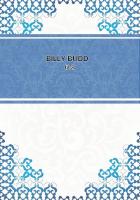We have, in this concluding chapter, to take a review of Bunyan's merits as a writer, with especial reference to the works on which his fame mainly rests, and, above all, to that which has given him his chief title to be included in a series of Great Writers, "The Pilgrim's Progress." Bunyan, as we have seen, was a very copious author. His works, as collected by the late industrious Mr. Offor, fill three bulky quarto volumes, each of nearly eight hundred double-columned pages in small type. And this copiousness of production is combined with a general excellence in the matter produced. While few of his books approach the high standard of "The Pilgrim's Progress" or "Holy War," none, it may be truly said, sink very far below that standard. It may indeed be affirmed that it was impossible for Bunyan to write badly. His genius was a native genius. As soon as he began to write at all, he wrote well.
Without any training, is he says, in the school of Aristotle or Plato, or any study of the great masters of literature, at one bound he leapt to a high level of thought and composition. His earliest book, "Some Gospel Truths Opened," "thrown off," writes Dr. Brown, "at a heat," displays the same ease of style and directness of speech and absence of stilted phraseology which he maintained to the end. The great charm which pervades all Bunyan's writings is their naturalness. You never feel that he is writing for effect, still less to perform an uncongenial piece of task-work. He writes because he had something to say which was worth saying, a message to deliver on which the highest interests of others were at stake, which demanded nothing more than a straightforward earnestness and plainness of speech, such as coming from the heart might best reach the hearts of others. He wrote as he spoke, because a necessity was laid upon him which he dared not evade. As he says in a passage quoted in a former chapter, he might have stepped into a much higher style, and have employed more literary ornament. But to attempt this would be, to one of his intense earnestness, to degrade his calling. He dared not do it.
Like the great Apostle, "his speech and preaching was not with enticing words of man's wisdom, but in demonstration of the Spirit and in power." God had not played with him, and he dared not play with others. His errand was much too serious, and their need and danger too urgent to waste time in tricking out his words with human skill. And it is just this which, with all their rudeness, their occasional bad grammar, and homely colloquialisms, gives to Bunyan's writings a power of riveting the attention and stirring the affections which few writers have attained to. The pent-up fire glows in every line, and kindles the hearts of his readers.
"Beautiful images, vivid expressions, forcible arguments all aglow with passion, tender pleadings, solemn warnings, make those who read him all eye, all ear, all soul." This native vigour is attributable, in no small degree, to the manner in which for the most part Bunyan's works came into being. He did not set himself to compose theological treatises upon stated subjects, but after he had preached with satisfaction to himself and acceptance with his audience, he usually wrote out the substance of his discourse from memory, with the enlargements and additions it might seem to require. And thus his religious works have all the glow and fervour of the unwritten utterances of a practised orator, united with the orderliness and precision of a theologian, and are no less admirable for the excellence of their arrangement than for their evangelical spirit and scriptural doctrine. Originally meant to be heard, they lose somewhat by being read. But few can read them without being delighted with the opulence of his imagination and impressed with the solemn earnestness of his convictions. Like the subject of the portrait described by him in the House of the Interpreter, he stands "like one who pleads with men, the law of truth written upon his lips, the world behind his back, and a crown of gold above his head."These characteristics, which distinguish Bunyan as a writer from most of his Puritan contemporaries, are most conspicuous in the works by which he is chiefly known, "The Pilgrim's Progress," the "Holy War," the "Grace Abounding," and we may add, though from the repulsiveness of the subject the book is now scarcely read at all, the "Life and Death of Mr. Badman."One great charm of these works, especially of "The Pilgrim's Progress," lies in the pure Saxon English in which they are written, which render them models of the English speech, plain but never vulgar, homely but never coarse, and still less unclean, full of imagery but never obscure, always intelligible, always forcible, going straight to the point in the fewest and ******st words;"powerful and picturesque," writes Hallam, "from concise simplicity." Bunyan's style is recommended by Lord Macaulay as an invaluable study to every person who wishes to gain a wide command over his mother tongue. Its vocabulary is the vocabulary of the common people. "There is not," he truly says, "in 'The Pilgrim's Progress' a single expression, if we except a few technical terms of theology, that would puzzle the rudest peasant." We may, look through whole pages, and not find a word of more than two syllables. Nor is the source of this pellucid clearness and imaginative power far to seek. Bunyan was essentially a man of one book, and that book the very best, not only for its spiritual teaching but for the purity of its style, the English Bible. "In no book," writes Mr. J. R. Green, "do we see more clearly than in 'The Pilgrim's Progress' the new imaginative force which had been given to the common life of Englishmen by their study of the Bible.
Bunyan's English is the ******st and homeliest English that has ever been used by any great English writer, but it is the English of the Bible. His images are the images of prophet and evangelist.













